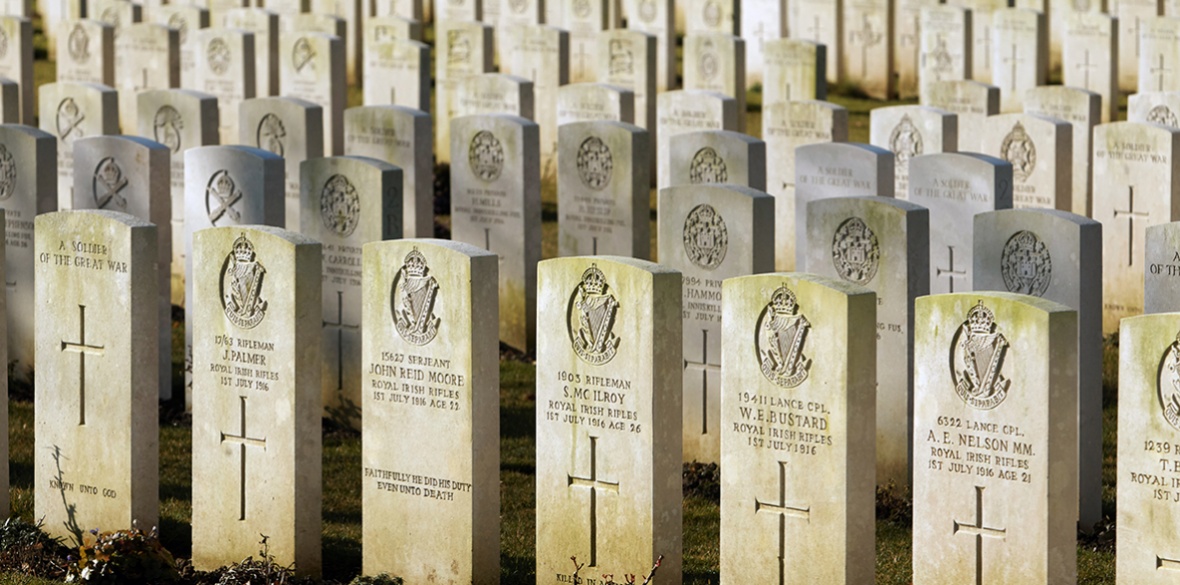This is the last article you can read this month
You can read more article this month
You can read more articles this month
Sorry your limit is up for this month
Reset on:
Please help support the Morning Star by subscribing here
AUTHORITIES knew for years that more than 100,000 black and Asian soldiers who died fighting for the British empire were not properly commemorated but failed to address this injustice.
Anti-racism campaigners said today that it was a “disgrace” that research revealing that black and Asian troops had not been commemorated in the same way as their white comrades had not been acknowledged until now.
The Commonwealth War Graves Commission (CWGC) apologised after publishing a report which found that “pervasive racism” underpinned decisions to bury soldiers during the first world war without individual graves.
At least 116,000 — and potentially up to 350,000 — predominantly African and Middle Eastern soldiers who lost their lives in the conflict “were not commemorated by name or possibly not commemorated at all,” the report says. It also estimates that between 45,000 and 54,000 Africans and Asians were commemorated “unequally.”
The release of the report prompted an apology today by Defence Secretary Ben Wallace, who told the Commons that there would be new measures to address the imbalance.
But historian David Olusoga said it was a “scandal” that the issue had not been addressed years ago, having first been uncovered by Professor Michele Barrett in 2012.
Professor Olusoga accused the CWGC, under its previous leadership, of having “chosen to ignore” the findings.
“This is not something that’s been uncovered by this report,” he said. “It’s being acknowledged by this report. Michele’s work uncovered this a decade ago.”
He said that, while the failure to commemorate black and Asian service personnel is “one of the biggest scandals I’ve ever come across as an historian,” the “biggest scandal is that this was known years ago.”
Prof Olusoga branded the unequal treatment of fallen soldiers “apartheid in death.”
The commission set up a committee to investigate the scandal only after the release of a 2019 documentary, produced by Prof Olusoga’s television company, which featured Labour MP David Lammy.
During the programme, a document by one army leader is presented which describes non-white service personnel who died as being “of a semi-savage nature.”
The commission’s report also cites other racist statements, such as a governor saying in the 1920s that “the average native … would not understand or appreciate a headstone.”
Mr Lammy described the investigation as a “watershed moment.”
Anti-racism campaigner Zita Holbourne also criticised delays in addressing the issue. She told the Morning Star: “It’s a disgrace that it has taken so long for this to be acknowledged.
“The recent government race report talks of racism in the past ‘haunting us’ like we should just move on, but these actions create a negative environment today and do impact on future generations … because it is a reminder that our foreparents were not valued or respected.”
Ms Holbourne demanded urgent action to address the issue, adding: “History and acknowledgement of our contributions and achievements are important in challenging the racism we face today.”
Stand up to Racism co-convener Weyman Bennet said many generations of his Jamaican family had joined the British army — including his father, who fought in the second world war — but “very rarely have they been acknowledged for the role they played.
“The denial and [lack of] acknowledgement is a consequence of institutional racism and a disgrace to the contribution that people made, particularly against the fight against fascism,” he told the Star.
“All of us oppose wars, but it is an injustice that has to be exposed and has to be rejected, like the government’s [race] report.”
In the Commons, Mr Wallace expressed “deep regret” over the scandal, acknowledging that “prejudice played a role.”
He announced a public consultation onplans to waive the visa fee for service personnel from the Commonwealth and Nepal who choose to settle in Britain.
The CWGC also issued an apology, admitting that the actions were “wrong then and are wrong now” and that officials would be “acting immediately to correct them.”
The CWGC, originally named the Imperial War Graves Commission, was founded in 1917 to mark those who died in war, with the principle that each fatality should be commemorated by name on a permanent headstone or memorial.












